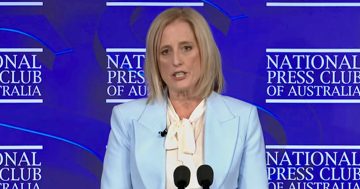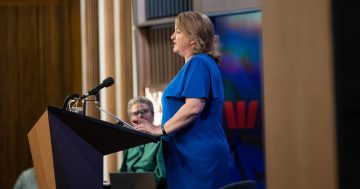Financy* says superannuation payments on parental leave could be a gamechanger.
 Let me make this clear… an election pledge by a major party to include superannuation payments on parental leave is a game changer for swinging voters, myself included.
Let me make this clear… an election pledge by a major party to include superannuation payments on parental leave is a game changer for swinging voters, myself included.
As it stands the Federal Liberal party has struggled to get with the gender equality program as a whole, and this is notably the case when it comes to endorsing recommendations for super to included on government funded parental leave.
The government appears worried about the immediate cost of including super in its 18 weeks government paid parental leave scheme despite recommendations for it in the retirement income review and the Productivity Commission.
With just a few weeks to go before the federal election on May 21, various independents and super funds are pressuring the majors to the policy change.
Indeed just this week, Active Super announced it will pay primary caregivers superannuation guarantee (SG) contributions for up to 12 months on paid and unpaid parental leave.
It will also extend parental leave entitlements for primary caregivers from the existing 12 weeks to 18 weeks, and secondary caregivers will now receive four weeks leave at full pay and SG contributions, up from one week.
Hopes have also been dashed that the Federal Labor party would position itself as a leader of difference when it comes to policy that directly impacts gender equality.
The Australian Financial Review is now reporting that the party is wavering on an earlier pledge to include super payments as part of paid parental leave.
This leaves many voters now asking themselves: which of the major political parties actually cares about gender equality in Australia?
The cost of playing super on parental leave is relatively small in the scheme of things at an estimated $200 million per year.
The March Federal Budget committed $1.3 billion to be invested in women’s safety and $482 million on women’s economic security.
By comparison Treasurer Josh Frydenberg committed to $2.8bn for apprentices and $2.2bn for innovation at universities to address skills shortages, plus $4.7 billion on extra health services and nearly $10 billion on defense over the next decade.
The cost benefits from such an injection are long term positives for gender equality and include:
- Supporting the broader economic security of primary care givers which tend to be women who take time out of the workforce to care for children or loves ones.
- Closing the 30 per cent-40 per cent gender gap in superannuation lifetime savings
- Closing the 33 year timeframe for achieving gender equality in superannuation savings, as reported by the Financy Women’s Index.
- Breaking the gender stereotypes that exists between men and women when it comes to primary care giving.
According to Super Fierce CEO Trenna Probert the result of inaction on super payments on parental leave is a needless “Mother’s Tax” of about $280,000 per woman.
This is calculated by considering the following:
- The years of having either no income or very low income whilst caring for children between 0 and 5 years of age (around $8,000 per annum less SG contributions adding to $43,000 post-tax)
- Loss of salary momentum vs peers that didn’t take time-out:
▪ According to KPMG, back to work mums come back at salaries 9 per cent lower than their non-mum peers
▪ This reduces contributions by an average of $88,000 over the following 30 years of work - Part-time back to work mums:
▪ The lower hours worked post that period where children were between 0 and 5 years old (14 per cent-28 per cent depending upon who’s analysis is used – we used the conservative 14 per cent)
▪ This has a $55,000 cumulative impact - The compounding impact of this money not earning investment returns in super equates to a $92,000 loss.
What’s clear is that if the major political parties are not willing to consider implementing policy change in support of big goals such as gender equality, then there is little option but to vote for the smaller players that do.
*Financy creates and publishes a variety of content on women’s money matters.
This article first appeared at financy.com.au.











